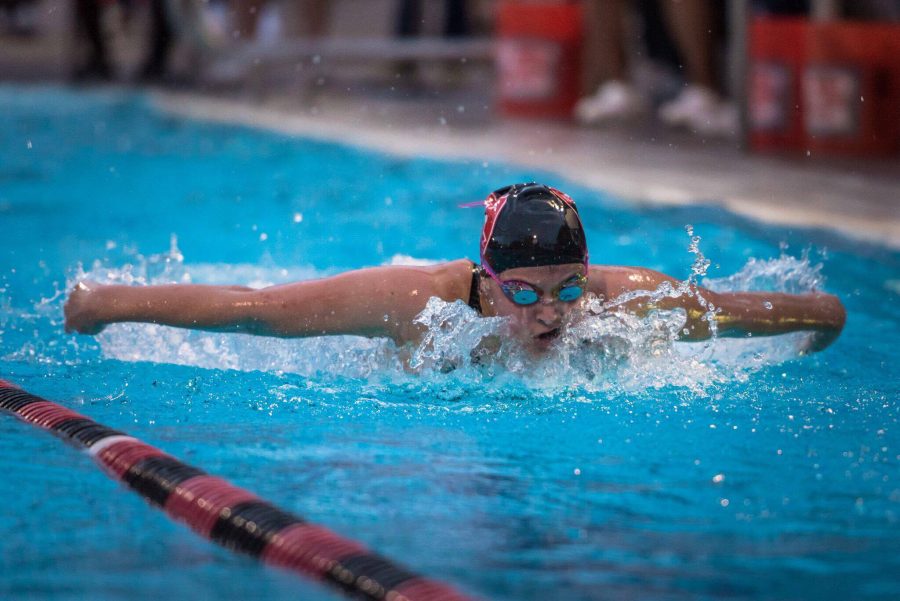Learning to Stay Afloat with Hana Brett
Hana Brett’s greatest accomplishment this year would likely be either being recruited by Cornell for Division 1 swimming or being able to sleep at 9 p.m. on a regular basis. For most high schoolers, much less a student athlete, finding a way to get enough sleep and balance everyday life can be a tough venture. Given Hana’s practice schedule, her ability to do so is even more impressive.
“Morning practice for my swim team starts at 5:45 and is until 7:15, and then in the afternoon I go to practice for three hours,” Hana said. “Some weeks I’ll have 21 hours of training. We also have swim meets which take up pretty much most of the [weekend].”
The path to this point certainly wasn’t easy, and along the way Hana needed to make a number of changes to her daily life. She has adapted to a lifestyle pointedly different than many of her friends — especially in terms of her social life.
“I definitely can’t make plans after school and just hang out with people unless I want to be up late,” Hana said. “Some nights or some days I wish I could go hang out with my friends if everyone is going and I’m the only one who can’t because I have practice. Friends learn to understand that you don’t have much free time and you won’t be able to see each other that much.”
While Hana’s schedule makes it difficult to find time for her friends at school, she balances her social life through finding a “family” in her swim team. Many of Hana’s closest friends are also her teammates, and through their shared experiences and their endeavors to find their own balance, they have found a special connection.
“You can make your swim friends your social life,” Hana said. “On our team, most of us are in high school, and we suffer together and are definitely there for each other. And for some of us on the team, we have been training together for five or six years, so we have had plenty to struggle through.”
And beyond social life, the regular stress of school work is further exasperated by Hana’s rigorous swim schedule: her time not spent in the pool is time used to focus on school.
“There definitely have been days where I have a lot of homework, but I still have to go to swimming,” Hana said. “Every once in awhile, I’ll skip the first hour of practice which is just the out-of-water stuff. But that doesn’t usually happen because my swim coach doesn’t really like that excuse.”
For many high schoolers, putting off work is a common occurrence, but Hana does not have the luxury of procrastination. Many years of swimming have done more than only train Hana to do well in races; they’ve also helped her manage time more efficiently.
“You have to learn to be very disciplined from the beginning or else you’ll really struggle,” Hana said. “For me, I was able to figure out how to manage my time early on. You have to learn how to time manage and not procrastinate or be distracted by your phone or something else.”
Hana’s profound love for swimming also alleviates her stress. She swims not only to compete or stay healthy, but also as a way to escape from everyday worries.
“I usually use swimming as a way to de-stress,” Hana said. “I can get away from my school life and stuff like that and focus on swimming and be with my friends, so it’s actually helpful [in that way].”
Whether it be sacrificing some of her social life or using swimming as a way to ignore stressors, Hana has found a way to stay afloat. Her ability to sleep enough each day may seem trivial to some, but it’s no small feat. Instead, it is a testament to a balance she has worked on for many years — a balance she will carry to Cornell next year.
“Everyone says how you have to figure out [college] freshman year and find a system that works for you so that you’ll be able to get your school work done, practice done and enough sleep,” Hana said. “Right now, I have a good system that hopefully I’ll be able to carry over.”



